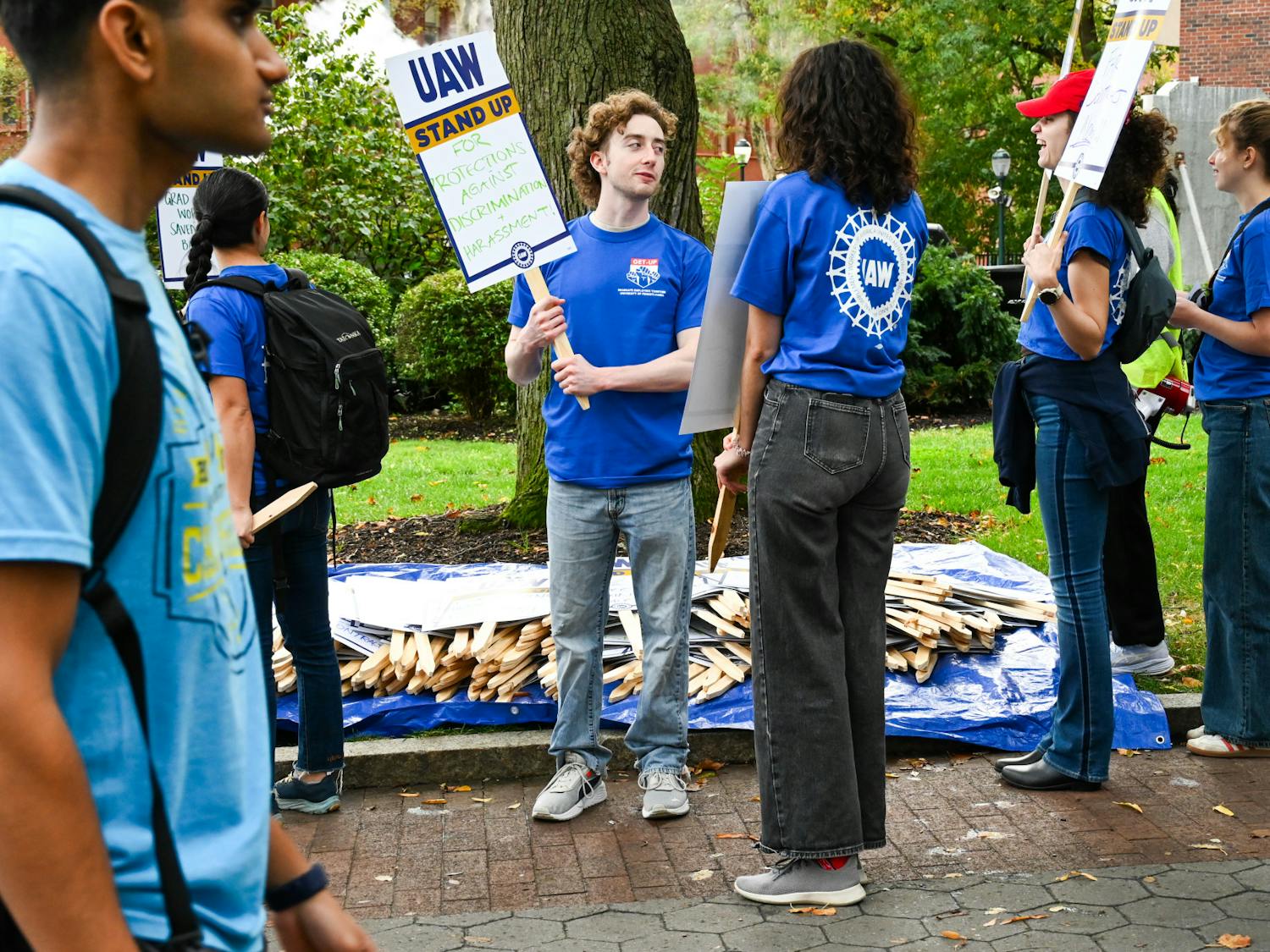After President-elect and former Penn professor Joe Biden's victory, Penn Democrats will shift its focus from presidential campaigning to helping Biden achieve his campaign promises. To start off, the group will focus on turning the Senate blue with the upcoming Georgia runoff elections.
College senior Owen Voutsinas-Klose, who serves as the group’s president, and College sophomore Emilia Onuonga, the vice president, said that Penn Dems will spend the rest of the semester processing the election results by holding discussions, examining students' hopes for the Biden administration, and working to make these hopes a reality by campaigning to flip the Senate.
“We definitely want to push Biden to be more progressive, but at the end of the day, it’s all going to rely on what happens with the Senate and who holds power in the Senate,” Onuonga said. “So, right now all our eyes are on Georgia, and we're going to be doing everything we can to turn Georgia blue, and help the Senate races to the fullest extent that we can.”
Runoff elections refer to the follow-up race, held after the initial election, when neither candidate received a majority of votes. Georgia will hold two runoff elections on January 5—one for the race between Democrat Raphael Warnock, who has received 32.9 % of the vote so far, and Republican Sen. Kelly Loeffler, with 25.9 % of the vote, as well as for the race between Republican Sen. David Perdue, with 49.7 % of the vote and Democrat Jon Ossoff with 48.0 %, according to FiveThirtyEight.
If Democrats prevail in the two remaining Georgia Senate races, then the Senate will be split equally between the two parties, with Vice President Kamala Harris acting as tie-breaker. This would allow for Democratic control of the Senate, and with a Democrat for president, the Biden Administration would likely have an easier time passing progressive legislation regarding issues such as climate change or healthcare.
A Democratic presidential candidate has not won the state of Georgia since 1992, and the state's new light blue status has thrust it into the national spotlight. Biden won the state by 14,000 votes out of nearly 5 million, according to NBC.
Penn Dems Political Director and College junior Michael Nevett said that he is inspired by the activism surrounding the runoffs in Georgia so far, particularly regarding the efforts of Black women.
"Black organizers, and Black women in particular, have been responsible for the [Democratic party's] successes and gains that we've seen in Georgia, so we're now here to follow their lead," Nevett said.
RELATED:
Penn student leaders greet Biden's victory but vow to keep the president-elect accountable
Penn's Ezekiel Emanuel appointed to Biden-Harris COVID-19 advisory board
Onuonga said that Penn Dems will hold phone banks and text banks to encourage people to vote in the runoff elections and answer questions individuals have about the voting process. They will also encourage donations to national voting rights organizations that will work to encourage voters to vote in the Senate races, such as voting rights activist Stacey Abrams’ Fair Fight, which aims to promote fair elections around the country and educate voters about their rights.
Aside from the focus on the Georgia runoff elections, Onuonga said that Penn Dems will also be examining the election results, particularly why the election featured a shift for Black and Hispanic voters towards the Republican party ticket. Though Trump still trains Biden considerably with minority groups as a whole, UCLA Nationscape’s polling found that Trump was down by 39 points with these voters, as opposed to his 53-point deficit in 2016.
“I think after any election, the party needs to take the time to reflect, and so we're looking at the results of the election and what we noticed was that the Republican Party had a growing number of minorities move over to them,” Onuonga added. “Although we don't want to hear it, I think that the GOP is raising valid critiques of our party. We were expecting this to be a blue wave and so we really need to analyze why exactly it wasn’t, so we're going to be having a few discussions to discuss why we saw a minority loss in this election and what we can do better.”
Voutsinas-Klose echoed Onuonga’s sentiments about examining election results, such as voter demographics, and what a Biden presidency will actually mean for voters.
“We’re looking to have some programming about kind of what the consequences of a Biden presidency are and how people are processing the election results, what their hopes are, what their fears are,” Voutsinas-Klose said. “We also want to center the conversation around Biden's coalition, and the role that young people and people of color played in his victory.”
Voutsinas-Klose said although he’s graduating in December, he predicts the club will focus next semester on pushing the administration to embrace progressive changes on the two issues he believes to be most pressing for young people in America: climate change and the student debt crisis.
“Biden can do a lot with his executive authority to, number one, cancel student debt that's owed to the federal government, and number two, to take aggressive action on climate change whether that means rejoining the Paris Climate Agreement, or regulating fuel efficiency standards on cars, or strictly regulating carbon emissions,” Voutsinas-Klose said. “You can do all of those things and more with his executive authority, so now we're really looking for him to take some bold action.”









